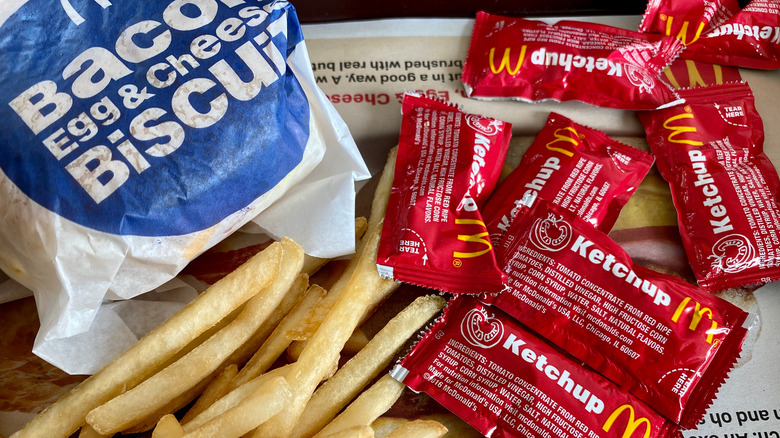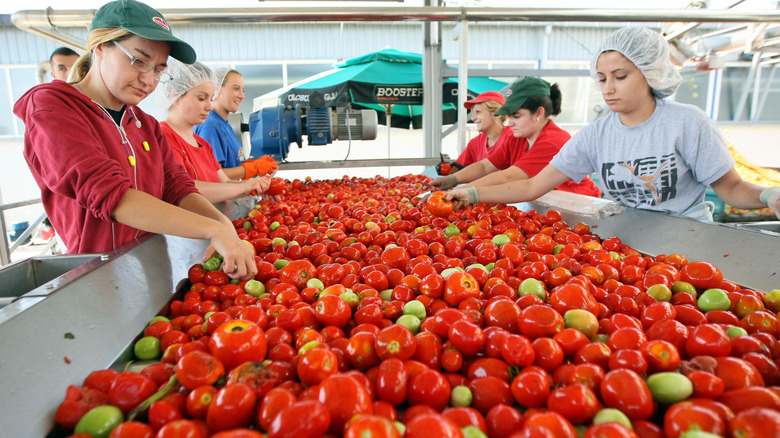Will Restaurants Run Out Of Ketchup Again In 2021?
Do you remember when restaurants worried they were going to run out of ketchup? The Wall Street Journal reported in April that Kraft Heinz, which makes most of the ketchup sold in the U.S., couldn't keep up with a spike in demand for single-serve packets. It was yet another example of the dreaded supply chain disruptions brought on by the COVID-19 pandemic. To give a separate example, one of the most dramatic of these disruptions in the food industry happened at meat processing facilities (via Food Engineering). COVID-19 illnesses forced plant closures, resulting in meat shortages in the spring and summer of 2020.
Ketchup was different. It never experienced an outright shortage. Kraft Heinz simply had one of its staple products in the wrong packages, given the unusual demands of the market due to COVID-19. "The strain on demand started when people stopped going to restaurants and they were ordering takeout and home delivery," Kraft Heinz CEO Miguel Patricio told Time. "There would be a lot of packets in the takeout orders. So we have bottles; we don't have enough pouches."
That particular problem has been solved, Patricio said. Fast food fans don't need to worry about going without their ketchup packets. But another ketchup problem is on the horizon.
The ketchup shortage is over. Could high prices be next?
Kraft Heinz corrected for the ketchup packet shortage over the past few months, simply by increasing production. While the shortage wasn't common knowledge until The Wall Street Journal reported it in April of this year, CEO Miguel Patricio told Time that Kraft Heinz saw it coming in July 2020. By July of this year, the company had increased packet output by 25%, by installing eight new production lines. "That will solve the problem," Patricio told Time in June. "It takes about a year to order, install and start operating a new line of ketchup."
But ketchup can't catch a break. Another crisis looms, and this one's being felt by California's tomato farmers. According to The Washington Post, California is in severe drought, and farmers are growing fewer tomatoes this summer in order to save what little water they have for more expensive almond, pistachio, and olive crops. Farmers are also facing increasing costs unrelated to the drought, so this year's crop of tomatoes destined to become ketchup is bound to be more expensive. Kraft Heinz wouldn't say anything to The Washington Post about whether it intends to pass that price increase on to its customers. Fast food consumers should keep in mind, though, that those ketchup packets that come with their meal aren't really free. If you aren't already paying more for your drive-thru french fries, you may soon.

